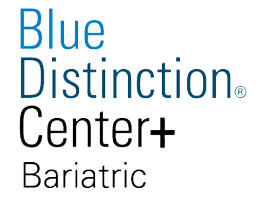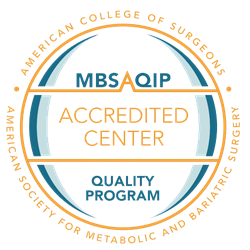Weight Loss Surgery and the Insurance Process
By: Caitlin Kennington, Insurance Specialist

Learn more about weight loss surgery at Rocky Mountain Associated Physicians www.RMAP.com (801) 268-3800
One of the most common questions asked by prospective patients is, “Will my insurance cover Weight Loss Surgery, and what requirements do I have to meet in order to qualify?” The answers to these questions will vary considerably based on your insurance plan and, often, your employer group.
Coverage for Bariatric Surgery is almost exclusively found in large employer groups, with the exception of Medicare, Medicaid, and Military insurances, and is an inclusion for which your employer can either opt in or out. Fortunately, we are seeing more and more insurance companies making it easier and more cost-efficient for employer groups to include coverage for surgery. We are also seeing more employers recognizing the value a bariatric benefit can bring to the lives of their employees.
Unfortunately, small employer plans (>50 employees) and individual plans do not offer surgery coverage and do not allow for the chance to purchase a coverage rider for surgery. Unlike many states in the U.S., Utah did not include obesity services and bariatric coverage on the list of essential benefits when adopting their guidelines under the Affordable Healthcare Act. Hopefully, in time, increasing evidence of the benefits of surgery will override discriminatory attitudes and this will change. However, as of now, if your plan does not have a weight loss surgery rider, your insurance will not cover any portion of surgery, regardless of medical conditions, BMI, or doctor recommendations.
If your health insurance plan does cover surgery, they will require certain steps and documentation in order to issue an authorization; we refer to these requirements as criteria. The criteria will vary from insurance company to insurance company and even sometimes from employer group to employer group. Your friend’s requirements and timeline to surgery may be very different from yours depending on those criteria.
All insurances will require you to have a diagnosis of morbid obesity. This is shown by a BMI (Body Mass Index) of >40, though if you have a co-morbid condition such as Type 2 Diabetes, Obstructive Sleep Apnea, or High Blood Pressure, your BMI can be as low as 35.
Though all other criteria will vary, most commonly we see the insurances require a specific length supervised diet program, a one-time visit with a nutritionist for an evaluation and/or a psychological assessment. Additionally, you may be required to get some labs drawn, prove morbid obesity for a number of years or obtain a letter from your Primary Care Physician clearing you for surgery. The idea behind this criterion is to make sure you are prepared emotionally and physically for the changes that weight loss surgery will require and to help ease the transition to your new post-operative lifestyle.
By far, I get the most questions regarding the supervised diet requirement. This is a series of appointments with a medical provider (doctor, nurse practitioner, physician’s assistant, or a registered dietitian) to discuss and monitor your weight loss efforts. Most frequently the insurances will ask for the program to cover either 4 months or 6 months, and often these visits need to be over consecutive months. If your criteria states that the visits must be done consecutively, it is very important that you don’t skip a month or else you’ll likely face a denial or have to prolong your diet program. These visits should focus on your diet and exercise behaviors and the records from the appointments should document those conversations in detail. The point of the supervised diet is to show consistency and compliance with a diet and exercise regimen. Though some insurance companies do not allow for a net weight gain on this program, many do not care if weight is lost or gained as long as the records prove your efforts towards healthy behavioral changes. Programs that consist solely of weight loss medications without mention of diet and exercise efforts will not meet this requirement.
It can sometimes be frustrating for patients to be told that they have to wait for several months until they can have surgery but the time can be viewed as an excellent opportunity to break habits that will hinder success post-surgery and build better habits in their place. You may want to focus on such things as cutting your carbs, sugars and giving up soda while increasing water intake, protein and vegetables. It is also a good chance to get in the habit of moving and exercising more. Many patients have mobility concerns but your provider can work with you to help you find some sort of plan to get your activity levels up; even small changes are helpful!
A nutrition evaluation is similar to the supervised diet, though, it tends to involve a more in-depth conversation regarding your diet habits and nutritional preparation for surgery. This is a one-time visit and must be done with a registered dietitian. It is helpful to have these nutritional counseling sessions because they’ll provide good information to help in making food choices both pre- and post-operatively.
Almost ever insurance will require a psychological evaluation for all patients undergoing bariatric surgery. The purpose of this evaluation is not necessarily to disqualify anyone from surgery but to make sure that there isn’t anything going on that would impede a patient’s ability to consent or comply with pre- and post-operative guidelines. This evaluation can often be done with any licensed mental health provider though not all may feel equipped to administer these evaluations; we often can provide resources of providers to call.
There are a few questions that should be addressed in this evaluation. Is there a history of mental health concerns, eating disorders or substance abuse? If so, have those issues been appropriately treated and are they in a stable place? Do you understand what surgery involves and are you willing and motivated to make those lifestyle changes? Do you have appropriate expectations for surgery? Bariatric surgery is not a magic fix but a very effective tool and the insurance wants to make sure it is being viewed and treated that way. Do you have good, healthy coping mechanisms? Many people use food as a coping mechanism, so it is helpful to discuss building other coping skills to take its place. Do you have a good support system? In order to answer these questions some mental health providers may have you undergo some survey-style quizzes.
A handful of insurance companies require a letter form an outside medical provider (most frequently your PCP) attesting to your medical stability for surgery. These letters are helpful for our surgeons as well. Some insurances want those letters to specifically address the health of your heart and lungs for surgery. These clearances can be a full letter or a notation in a clinic note; there just needs to be something from your provider stating your medical suitability for surgery. Some providers will want a patient to come in for a full physical or run a battery of tests to feel comfortable writing a clearance; that is completely up to them. Both the insurance company and our providers only require the letter and what your provider requires in order to feel like they are willing to sign their name to a clearance is at their total discretion.
If you have a history of major medical problems, specifically with your heart, lungs, kidneys, liver, Gastrointestinal (GI) tract or a history of blood clots, you’ll want the provider treating you for those conditions to provide records and clearances for surgery regardless of insurance requirement. It is very important that we know of any special precautions that need to be taken with your pre- and post-operative care to help minimize your chances of complications.
In addition to the above, most commonly required criteria, some insurances may ask for a history of morbid obesity of 1, 2, or 5 years, a thyroid panel to make sure your thyroid is functioning or being properly medicated, and/or a test for Helicobacter pylori (H. pylori), which is a bacteria that can cause Peptic Ulcer Disease.
You may also hear your insurance mention that your benefit is improved or surgery is only approved at a Bariatric Center of Excellence. All three of our surgeons here at Rocky Mountain Associated Physicians (RMAP), as well as St. Mark’s and LDS hospitals, are certified as Bariatric Centers of Excellence. Sometimes you’ll see specific ones with your insurance such as a Blue Cross Blue Shield Blue Distinction Center, Aetna Institute of Quality, or a United Center of Excellence. We hold all of these. In order to qualify as a COE (Center of Excellence) provider, there must be a high level of experience in bariatric surgeries, a focus on patient education, and low complication rates.
Whatever your insurance requires for criteria cannot be waived or bypassed for any reason, even medical ones. The insurances are very strict when it comes to bariatric approvals and they will not issue one unless all requirements are met to their specific liking. If you are on a tight deadline, we can always look at records of things you have already done, usually going back 1-2 years, and see if those can meet some of the requirements. However, we often find that it can be problematic shoehorning records to fit the strict insurance guidelines. Doing that can lead to denials and appeals which can be extremely frustrating to you and extend the authorization process beyond what it would have been had the criteria just been completed to the insurance specifications.
This can look overwhelming and confusing but my job is to help guide you through it. I am always happy to answer questions, provide resources, and keep things in order for you! I am available via phone or e-mail. I check both frequently and will always respond as quickly as I can. In order to allow me to help you to my full ability, I would recommend all records be sent to me after each visit so that I can see what you have done and what will be needed. Records can be sent via fax (801-268-3997), e-mail (forms@rmapinc.com), or in person. Please never feel absurd or as though your questions or clarifications are “dumb” or “stupid”. The entire team here at RMAP, myself included, is dedicated to making your journey to and through surgery as smooth as possible!
About the Author:

Caitlin is one of Rocky Mountain Associated Physicians (RMAP)’s insurance specialist by verifying patient’s insurance coverage and helping them with insurance criteria benefits. She was raised in Brigham City, Utah and Las Vegas, Nevada along with five of her siblings. She studied Art History at the University of Utah and is a Certified Gemologist and Jeweler. Caitlin enjoys reading, making jewelry, and spending time with her family, especially her husband, son and daughter.
www.RMAP.com
Rocky Mountain Associated Physicians
801-268-3800
1160 East 3900 South, Suite 4100
SLC, UT 84124













 Address: 1521 East 3900 South STE 100
Address: 1521 East 3900 South STE 100 Office: +
Office: +  Fax number (801) 268-3997
Fax number (801) 268-3997 Email: info@rmapinc.com
Email: info@rmapinc.com



